By Toyin Falola
The theme of the Nigerian Independence Day protests was intriguing. The tag “fearless in October” captures the imagination and evokes thoughts about what must have been running through its creators’ minds. I think that its selection was careful and well-timed. October reminds us of that period in 2020 when young Nigerians took to the streets in large numbers to protest the mindless cruelty of the Special Anti-robbery Squad (SARS) and the grating economic policies of President Muhammadu Buhari, the Chief Executive that commanded it. Those events ended in bloodshed and tears for countless participants, many of whom still seek justice today. The protests created a template for the #EndBadGovernance movement in August, which, although limited in popularity, was targeted at redressing the continuity of the worsening challenges Nigerians continue to face. Different administrations, same issues.
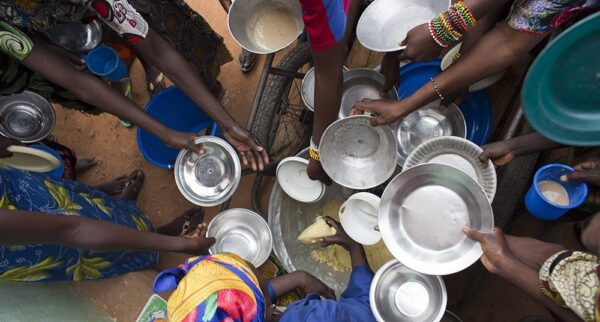
Unfortunately, telling Nigeria’s stories invariably requires rehashing the same themes, one of which is the role of economic factors in the contrivance of worsening poverty levels. Data reveals that over 50% of the Nigerian population is multidimensionally poor, indicating multiple layers of shortcomings in resource access. From social amenities to the availability of respectable incomes, Nigerians scarcely remain untroubled without threats at any period. Even worse, currency devaluation and formidable inflationary pressures over the past year have brought many to their knees. Nevertheless, the country’s problems are quite traceable. One of the primary contributors is the country’s dependence on oil. Despite being a major oil exporter, Nigeria suffers from the “resource curse,” where reliance on a single commodity leads to economic instability and inequality.
Fluctuations in global oil prices, corruption within the oil sector, and the Dutch disease effect–where currency appreciation discourages growth in other sectors of the economy–have all contributed to poverty. Nigeria’s economy has perennially shuffled to the rhythm of the international oil market, plunging whenever there is a downturn and feeding fat on glutes–at least until it could hardly produce enough to fill market demands when prices soared. History is replete with evidence, including the 1970s and following decades when the country felt it could spoil itself forever on the foreign exchange from oil to the detriment of other sectors. This shortsightedness led to costly consequences, such as austerity measures and structural adjustment programmes in subsequent decades.
The natural expectation is that follow-up measures would seek to revamp Nigeria’s overdependence on crude oil. However, this would hardly be so, as the final years of the Jonathan administration revealed. Owing to demand-side factors in crude sales, oil prices dropped by as much as 70%, triggering a prolonged recession in the country. The response from the newly minted Buhari government at the time was an absolute failure in terms of competence and accountability. For years, Buhari and his team repeatedly blamed the previous administration, insisting that the situation was too dire to be fixed so quickly. In all these, what the ex-general’s handlers refused to admit was that the president was patently clueless about economic matters. As he continued to play the blame game, Nigerians groaned under its heavy consequences.
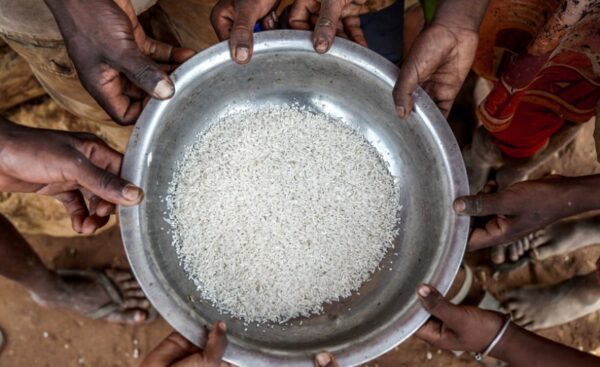
1a06a1fcc4a7981e85aca06da4139264:arc614x376:w882:us1.jpg
Workers were owed salaries for months, the desperate preservation of the naira stifled investment inflows, and the nation’s best minds increasingly realised that there were few opportunities for their capacious potential to thrive in their home country. Ridiculously, state officials sometimes went on live TV to dispute suggestions that Nigerians were suffering. They made shoddy efforts to paint Buhari as incorruptible, fair, and attentive to the needs of the average Nigerian. Yet, under his watch, wave after wave of killings engulfed numerous parts of the country as killer herdsmen ran amok. Farms were abandoned in preference for safety, while the president stoically refused to acknowledge the murders and, worse still, take meaningful action against those undermining the state.
These challenges soon enlarged into regional insecurity and displacement, like the insurgency in the Northeast that was already plaguing the country when the president assumed office. In its wake came further difficulty in tackling a looming crisis in food supply, as farmers could not access their lands. Buhari’s tenure will be remembered for classic state-level gaslighting and unfulfilled promises. In the minds of young people, the #EndSARS killings will take centre stage. Sharing the platform will be bogus ventures like the Nigerian airline (Nigeria Air) that never took flight, the unachieved conquest of terrorism in the Northeast within the promised three months, as well as the unfulfilled promise to repair state-run refineries, to name just a few.
Now, the entitled leadership brand of the Bola Tinubu administration takes the stage. One finds here the controversial fuel subsidy removal–a policy that, at best, was overly eager and, at worst, the quickest path to economic decline for millions of Nigerian households. Uniquely, resolving the multifaceted challenges of the Nigerian polity takes more than the deployment of a wishful magic wand or a smattering of policy fixes. It requires layered approaches, without which the ever-relentless devil remains in the detail. In Yoruba, Nigeria’s situation is aptly described as egbirin ote–a complex web of problems that keeps evolving, rearing its head in new places the instant one is decapitated. The National Petroleum Company is a prime example of this. For anyone who has ever bothered to inquire, there is a standard stream of plausible yet avoidable excuses its officials leverage to deflect criticism over recurring fuel supply shortages.
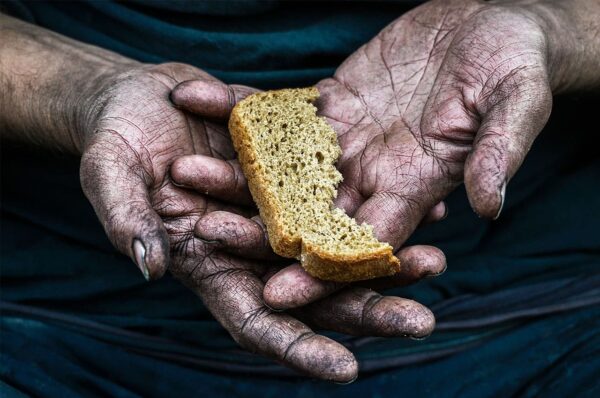
During the rainy season, flooding is used as a convenient excuse; at other times, it is some convoluted twist in the web of industry relationships. The same applies to the refineries, where failures in meeting production deadlines have totalled seven since work commenced. On a broader scale, the removal of duties on certain imported food items has run into bureaucratic gridlocks despite being theoretically set to take effect on July 15, 2024. In the private sector, foreign exchange issues preclude the utilisation of existing capacities, driving inflationary pressures down citizens’ throats. In other words, being Nigerian often means having little to no expectations.
If the government makes a promise today, your street wisdom–honed through years of failed promises and unmet potentials–should compel you to doubt them. You must not concede control of your life to the band of aloof politicians in the State House. Instead, take charge, hustle, and become the author and finisher of your fate in a country that threatens to strip even the concept of free will from you. That is the price of Nigerianness. It reflects the hallowed principle of the impossibility of building something out of nothing.
In specific terms, Nigeria’s infrastructure is underdeveloped, hindering economic growth and development. Poor roads, inadequate electricity supply, and limited access to transportation networks increase the cost of doing business and limit opportunities for economic activity. Expectedly, this situation affects productivity, job creation, and the overall economic well-being of the citizenry. Clear pictures of this emerge in discussions with individuals whose entrepreneurial mindsets led them to start businesses. Their stories are laden with themes of survival and prevalence despite the Nigerian factor. So, while one may consider digitisation as a solution to these issues, poor roads, corrupt state officials, and unreliable electricity remain significant obstacles.
Looking beyond this, when comparing the struggles of the average person with those of the privileged class, one finds a disturbing norm–even when policies are enacted to mitigate crises, the less privileged rarely benefit from them. This high level of inequality is reflected in the enormous pay packets received by people in offices like the legislature. With salaries that easily rival those of lawmakers anywhere else in the world, Nigerian leadership is a hotbed of insensitivity and a lack of patriotism.
In contrast to the prolonged debates over a new national minimum wage, the government seems to be actively prepared to enrich the purses of its acolytes rather than minimise the suffering of the masses. Instances of corruption and nepotism do not make this reality any easier to absorb. A scan of the list of Tinubu’s ministers will reveal that many are former governors with little to no relevant expertise in their current portfolios. More specifically, the selection of this crop of often incompetent individuals was largely determined by party loyalty and their impact on the incumbent’s election, with Nyesom Wike, the former governor of Rivers State, serving as a compelling example.
Worse still, it is difficult to tell whether there is any true appreciation for administrative discipline in overseeing ministers. A case in point is President Tinubu’s ambivalent stance on Betta Edu, whose office of humanitarian affairs was embroiled in scandal. To this day, it remains uncertain whether the axe has fallen on her or if the president’s reaction was merely a public relations stunt.
Since news first emerged about the likelihood of changes to serving ministers many months ago, there has been nothing but foot-dragging, suggesting to observers that a robust scheme of backroom negotiations is underway. While the administration prioritises satisfying its cronies and political allies, the situation at the grassroots continues to worsen. The wealth gap remains vast, with a small elite controlling a disproportionate share of resources, showing no sign of being evened by the government. Initially, there was a plan to requisition low-income earners with 8,000 naira; next came a scarcely realised project to distribute tons of rice. Both initiatives have become subjects of humour due to the shortsightedness and condescension underlining them.
In an economy where fuel prices have risen to historical heights, and the currency lies comatose, the reasoning that 8,000 naira could alleviate financial woes is utterly misguided and arrogant. The attempt to cushion the downsides of food inflation through rice distribution is also severely flawed, implementation-wise, as states have reported inconsistent delivery data. Given these trends, it is no surprise that the poor face increasing difficulties in accessing essential needs like education, healthcare, and other services, trapping them in a cycle of poverty. Notably, this is against a backdrop of rapid population growth, putting a strain on resources and exacerbating poverty. The increasing number of people competing for limited jobs, land, and social services has led to a higher unemployment rate, as the National Bureau of Statistics admitted under its new model, exacerbating poverty altogether.

While discussing these varying strands of economic and political challenges, it is also important to reflect on the quality of citizenship and democratic participation. Notably, the 2023 elections recorded the lowest turnout in Nigeria’s history, with just 26.72% of the voter population casting their votes at polling units. One analysis stated that this implies that for every ten eligible voters, only two showed up to vote. As a result, only a small fraction of the Nigerian electorate decided the ongoing trajectory of the country’s leadership. The widespread apathy displayed by millions of voters on election day symbolises a range of multiple issues. It is misguided to address this apathy without considering the nuances that drive it, such as fears of violent attacks at polling units, electoral fraud, and intimidation–all potent reasons to shun voting.
However, I strongly contend that Nigerians have developed a razor-edged disinterest in the affairs of their own country. If voter turnout is a qualified method for determining this, one could look at activism. Protests, such as the 2020 marches against poor governance, struggled with popularity depending on location. In certain areas, participation in the movements was forbidden for religious reasons. The #EndBadGovernance protests had even worse outings. The proposed ten-day marches were blunted by low turnouts at protest grounds, which deteriorated as the days passed, eventually forcing things to peter out before they reached an apex. The circumstances behind the underwhelming levels of participation can be surmised into one simple word: self-preservation.
For the average Nigerian, it is enough to merely exist and get by. If that happens, prayers and daily lamentations are the closest to dissent we will ever get. This is why it is nearly impossible to forge a united front on common problems. I do not intend to disregard the haunting issues of property loss and disorderliness that often pervade protest movements, but it takes only a shy measure of reasoning to realise that self-preservation or not, the collective challenges spurring these movements will persist in affecting us all. It also appears that there are gulfs between generations of Nigerians regarding approaches to democratic participation.
Among young adults, particularly Generation Z and millennials, their slightly older siblings, there is a more aggressive and participatory attitude to political involvement. Theirs is a generation heavy on demanding accountability, probably influenced by exposure to better narratives from social media. Contrastingly, a palpable sense of resignation exists among the older individuals. Perhaps this quality comes with age and experience of seeing the same issues play out repeatedly, but the appetite to challenge the leadership cadre is quite low. This laid-back tendency, I believe, contributed to the narrative that the #EndSARS protests were primarily led by hoodlums and “Yahoo boys.”
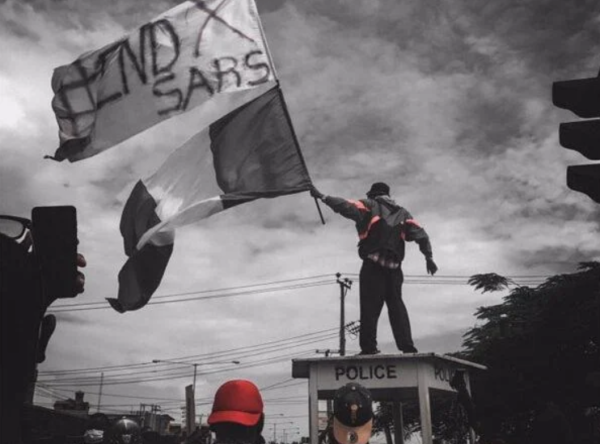
Aside from this, it is also arguable that members of the older generation have a much less receptive attitude to risk-taking than their younger counterparts. Police brutality, indiscriminate arrests, bullying, and threats to life and property are common consequences of opposing those in power. The fear of this, combined with longtime familiarity with the scarcity of justice, creates a clear recipe for self-preservation. It does not help matters that these instincts are further amplified by ethno-religious sentiments, with many perceiving certain movements as efforts to upend their political status. Despite the problems being similar across the North, East, and South, it is of no consequence as it is far too easy for detractors to stir feelings of loyalty to creed and community among ordinary people. It is equally easy to leverage these biases in creating ill-informed individuals typically framed as counter-protesters, as seen during the #EndBadGovernance movement. Sadly, this comes at a steep cost for political participation. It implies that it will be difficult to catalyse change now and soon, even as the disconnect with the government persists.
At this point, you might ask me what I think the solution could be; after all, it is not enough to pinpoint issues without identifying ways of resolving them. I believe that the country’s problems do not require a diviner to address. Nigerians are as aware of the needed solutions as they are of the challenges giving rise to them. It takes only a walk past newspaper stands or listening to random group conversations to know this. The drawback, however, is the lack of action, alternatively known as political will when describing the administrative class. A society lacking the willingness to confront its problems head-on, with the self-honesty and determination such challenges demand, will struggle to thrive, regardless of the creative range of solution-focused proposals available.
But we cannot live without hope. It is what keeps our spirits alive in the face of daunting adversity. So, I would say “hopefully” because that is the most productive thought; we will awaken collectively for transformational change–in time to save our dear nation.
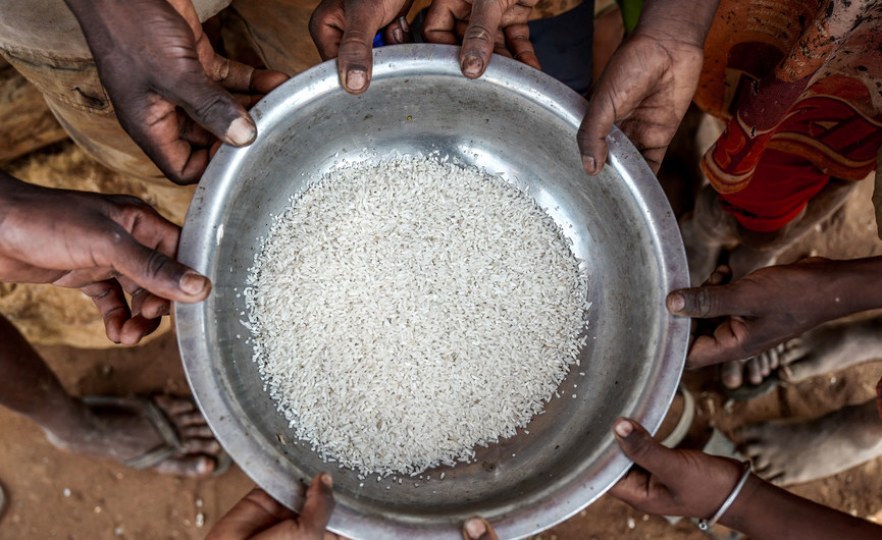
A very strong case for the phenomenon “hope” but on what (“fundamental”) foundation does this presupposition of “hope’s” potential productivity rest?